New Articles
-
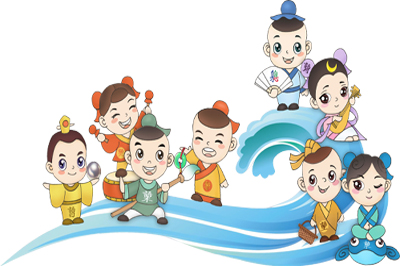 经济学的认知偏蔽与分化催生新思维 2026/02/24
经济学的认知偏蔽与分化催生新思维 2026/02/24【共生经济学·前言】 经济学的认知偏蔽与分化催生新思维 The Cognitive Bias and Fragmentation of Economics as...
-
 如何面对“终极的免费午餐”? 2026/02/22
如何面对“终极的免费午餐”? 2026/02/22《共生经济学》自序 如何面对“终极的免费午餐”? How Should We Face the “Ultimate Free Lunch”? 一、从宇...
-
 全球共生范式下的现代正常国家 2026/02/17
全球共生范式下的现代正常国家 2026/02/17全球共生范式下的现代正常国家 Modern National Normalization under the Global Symbiotic Paradigm ...
-
 论殖官主义:政权更迭为何不能终结人民的苦难? 2026/02/16
论殖官主义:政权更迭为何不能终结人民的苦难? 2026/02/16论殖官主义:政权更迭为何不能终结人民的苦难? Chinese Reproductive Officialdom: Why Regime Change Has Not...
共生思想理论前沿
THE THEORY
-
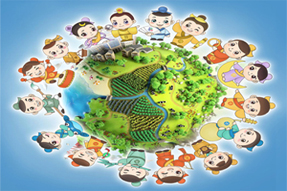
-

-
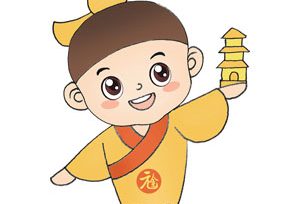
-
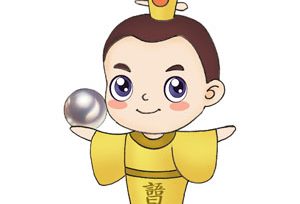 关于中文“共生”翻译及对应的人、事、物之说明
关于中文“共生”翻译及对应的人、事、物之说明关于中文“共生”翻译及对应的人、事、物之说明 ——Symbiosism:Charles Thomas Taylor &Qian hong又一次量子缠绕...
查看详细说明
Speech
-
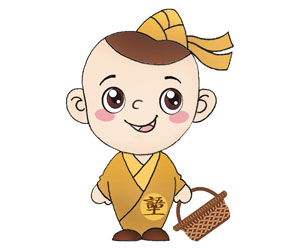 三大自组织货币的共生格局——宏观世界之数字货币 2021/07/08
三大自组织货币的共生格局——宏观世界之数字货币 2021/07/08三大自组织货币的共生格局 ——宏观世界之数字货币 钱 宏 The Institute for Global Symbiosism(...
-
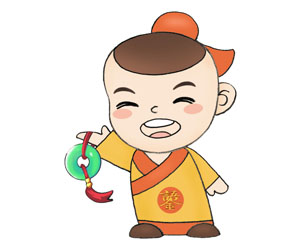 新汉字yǜ的释义 2019/11/16
新汉字yǜ的释义 2019/11/16语从金音玉(Yǜ):金口玉言,一诺千金,性人诚恳、执信; &n...
-
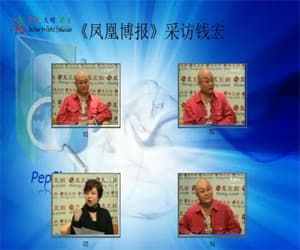 钱宏:中国的真实经验与未来走向(凤凰博报专... 2019/11/16
钱宏:中国的真实经验与未来走向(凤凰博报专... 2019/11/16点击播放 中国的真实经验与未来走向《凤凰博报》专访钱宏主持人:...
Mindedness·心路 :Blessed is happiness that is Meaningful
发布时间:2021/11/03 公司新闻 浏览次数:1278
Mindedness
——Blessed is happiness that is Meaningful
By:Archer Qian Hong
Translate:Lynne
Symbiosism Culture Think-Tank Foundation(CANADA)
When I was asked by Richmond Baptist Church to write paragraphs for the “Golden Roots Seniors’ Project” for our youth in the area, I came up with this title: “Blessed is happiness that is meaningful”.
In the second half of 2009, China Central Television (CCTV) invited my fellow sister writer Bi Shumin to “Crack the code of happiness” on the “100 Lecture Forum” TV program. It was discussed that through the perspectives of psychology, medicine and humanities, the bondage of stress, low self-esteem, depression, anxiety, sadness, fear of death, insecurity, pain and soulish emptiness can be broken to achieve healthy body, mind and spirit.
Psychologists have compared the neurological, physiological, and behavioural links and differences that produce pleasure and happiness. For instance, neurochemical transmitters such as hormones, dopamine, oxytocin, endorphins, serotonin, morphine, cocaine, cannabidiol, etc, all of which have the ability to improve our mood, counteract anxiety, relief pain, reduce the body’s dependence on substances such as alcohol and nicotine to give a sense of feeling good. But, are people truly happy?
Additionally, the neurotransmitter of the prefrontal cortex of the brain also regulates mood, sensuality, enlightenment, spirituality and behaviour. However, does pleasure purely derived from neurotransmitter alone have any value? Does it provide any sense of meaning or true happiness?
Nevertheless, it has been unanimously concluded that pleasure has to be meaningful for one to experience true happiness.
Hence, what is meaningful happiness and joy?
The pleasure of having a sense of meaning is a rhetorical expression as described by fellow Chinese writer Qian Zhongshu who tried to use a combination of sentences and words to reveal the freshness and colours of two different sensations experienced at the same time. For example, nature can perk our five senses and invoke an indescribable pleasure. For instance, he uses his sense of hearing and vision to express his esthetical pleasure when he experienced nature in spring such as, “the audio acoustic emissions of red apricots growing out of the wall usher in the sound of joy in spring”. From his sense of vision, the beauty of a willow tree in spring reveals his sense of melancholy when he described his feeling as, “the billowing willow tree is liken to falling tears in spring”. Words have indeed been adopted and commonly used to describe esthetical pleasure in connection with our five senses (sight, touch, smell, sound, taste) to produce limitless imagination as if colors can have temperature, sound, image and warm. Coldness can appear to have an unimaginable weight, smell and physique. However, such rhetorical expressions when repeatedly used wherein everyone “copies” and “reposts” each other, soon looses its meaning and results in some “pleasure fatigue”. This type of pleasure is superficial – has no differentiation from pleasures derived from playing online dating games or cracking dirty jokes or even smoking opium. Even though it does produces short term aesthetical pleasure, but when hardships and stressors appear in our lives, these pleasures would soon dissipate, lose its meaning, leaving us feeling empty, bored, hopeless and de-motivated. How then can we experience meaningful happiness?
When I say “meaningful happiness”, I mean a combination of senses that not only stimulates our inner hormones and dopamine, but also mobilizes our sense of understanding, spirituality and virtue in appreciating and cherishing the world around us by embracing the others (she, it, he) to create a world of possibility – a world wherein one and every talent and beauty can be expressed and taken up beyond the basic necessity of coexistence, hence allowing one “to live and let live” – a redemptive Symbiosis – through our own unique and powerful ability to self organise to make that happen.
This is how meaningful joy and happiness can be achieved!
So, my young friends, I think that meaningful happiness, the experience of a happy life, is not just physical and psychological, but also social, religious and philosophical in combination.
I am a philosopher, a thinker who grew up on the soil, and I can honestly say to you that, in retrospect, such meaningful life experiences have been ingrained in me from my childhood.
Please allow me to share with you a short story about a personal life experience I had with “meaningful joy”.
It was a golden autumn day and I was walking on the ridge of a paddy field with my mother overlooking a field of seasonal rice ears ripen and ready for harvest. Suddenly we heard a loud cry and saw a farmer sitting down in the paddy field ahead, clasping both his hands on his calf. We rushed over and saw that he had been cut by a sickle on his calf and bleeding profusely. I trembled at the sight of blood but my mother was brave, she plucked a handful of grass from the ridge and rubbed it together in her hands. The juice from the grass was applied onto the wound and the bleeding stopped miraculously!
Wow! A feeling of indescribable pleasure rushed over me from the soles of my feet to my heels, up my spine, to the back of my head till it reached the top of my head! I could no longer withhold my excitement and immediately asked my mother what kind of herb that was. She grinned and replied, “This herb is called Moringa, it’s specialise usage is to stop bleeding and reduce inflammation.” I was inspired that day and decided that I wanted to be a specialist in herbs and help others and my mother was going to teach me! I felt very happy doing this and in my hometown, the act of helping others either medically trained or untrained is known as “doing convenience”. My mother was pleased that I had such an aspiration. She said, “You will experience the real value of life and joy when you help to relief the pain in the lives of others”. I understood what my mother meant because I just experienced this earlier, the indescribable joy that radiates from within the marrow.
My mother stroked my head and murmured, “My big boy, what a good boy!” As she looked towards the sky, unexpectedly, tears started flowing down. Puzzled, I asked my mother why she was crying? My mother shook her head slightly and said “It’s nothing. I’m happy. In the future I will teach my boy how to recognise herbs.” At that moment, I felt a sense of an incomparable happiness.
Later, I learned about the legend of the “farmer god” or “shennong” in literal translation. Legend has it that “farmer god” had tasted a hundred types of herbs to find the one and only that could heal many of their ailments. Hence, he was conferred with the title “farmer god”. I copied what “farmer god” did, I learned about herbs by tasting it. From the taste, I could roughly gauge which body meridian it could enter and the effect it has on the body in accordance with the Traditional Chinese Medicine practice. As such, my knowledge of Chinese herbs had expanded to more than 2000 kinds as I increased my herb picking radius. My patients were not limited to my own village; I was invited to treat people from other villages as well. I never did charge a penny for any illnesses I had helped to cure.
I was often asked, “It is only rightfully to charge a little money for curing people, but doesn’t it take time for you to collect the herbs and make it into medicine? Once, someone whom I cured asked this same question again and I thought about it for a while and replied, “I am not a doctor, I am only doing a convenience for everyone. When I saw how you suffered in your sickness and through my meticulous remedy, I witness your gradual recovery and the happiness that radiated from your face, I was happier than you!”
At that time – in the midst of the Cultural Revolution in China, our family was mobilised and sent to a small rural squad. Being the eldest male in the family, I bore all the responsibilities of hard labour under the communist proletariat rule. I withstood multiple oppression coming from political, economical, socio-cultural and pressure from clan exclusion. This is said to be the “growing pains” of my youth. However, in my sufferings, I was able to find the joy in helping the villagers who were in need of medical care and medicines. It was as if in the joy, I was able to find the strength to overcome my own sufferings and made myself forget my own pain from the pressures of life. I felt as if I was brought to another reality in time transitioning on a mountain herb growing forest or in a moment of working hard to relief the suffering of a sick person.
Moreover, I never had any spare moment to wallow in my own sufferings. I grasped every opportunity in between labour work to read whatever I could get my hands on, be it “literature, science, engineering, medicine, or agriculture”. It was as though I was “living in the future”, imagining myself living beyond the limits of the present, doing some form of economic work. This type of fantasizing followed me throughout my formative years of 16 to 23 years of age.
The great Augustinus’ once said that “the world is like a book; and those who do not travel read only one page of it”. I not only had first hand experience of this early in life but also of his saying that “in any circumstances, the deeper the sufferings, the greater the joy that follows.
I always liked to work as quickly as possible on my own and I could singlehandedly complete the amount of work that many men labourers would have taken to complete in order that I could quickly spare some time in between work to do what I loved, such as standing on the paddy field ridge singing, loud enough to hear the echo of my own singing voice. When I was tired, I would lie down on the ridge and read a book. My favourite book to read at that time was an old medical stone lithography.
Of the many books that I have read, this one stood out in particular and had a profound influence on my life. I chanced upon this book in an antique bookstore when I went to Nanchang to study medicine. This is a Chinese translation of “The History of German Philosophy and Religion” written by Heine, the poet, who was also a friend of Hegel, Marx and Engels. The book gave me a special excitement of what I had never felt before, and for the first time I really felt the charm of philosophy and its liberating power for people.
The book describes in detail the pantheism that is rooted in German culture and how it directed the Lutheran Reformation that swept Europe and transformed the nation from a decentralized hierarchical dictatorship into a new world of unified expansion, free competition and equitable exchange. For one who was a farmer working in the field, I was astounded. At the end of the book, I wrote: “Philosophy is the catalyst for creativity in mankind, it gives wisdom and courage, it makes people honest and alert, it inspires us to step out of our comfort zone and embrace the strange world of the future”!
I have a special fondness for Engels, who with just a high school education; was able to use his wit and compassion to be the first in fully capturing a unified system to include nature-society-culture-psychology-history in the theoretical thinking of mankind. He raised the issue of reconciliation between man and nature and men and himself, far transcend that of Kant and Hegel’s purely speculative derivation. Engels famously made a diagnosis that “a nation cannot stand at the pinnacle of science without theoretical thinking for a single moment”. This may not have carried much weight with the scientifically sophisticated West, especially with theoretical giants like Einstein. But it still holds true amongst the so called “thought experiments” of the “Einstein phenomenon”. But in the Eastern world of the Chinese, this is an eye opening revelation.
Astrologers once asserted that I am destined to make the world my home – a thinker who grew out of the earth to which I am destined to live for the others (she, it, he) in spirit after I have undergone 3 metamorphoses to arrive at this calling.
As an Oriental, I may not have the rationality, passion and adventurous spirit as precise as that of Jesus, Socrates, Cicero, Winthrop, and Franklin, but I am also not impressed with Confucianism that is based on the patriarchal, eastern-style, cynical, profit-seeking, way of life mentality. Although the word “Confucian” does mean “human needs” or “what people need”, but the people here refers to the private person or “private citizen” of the patriarchal east and not the capitalized human being of Marx – the living individual of a free society, the individual that encompasses singular, whole, plural, communal conscious human being or “citizen” (community citizen, national citizen, world citizen, global citizen and cosmic citizen). The human individual who was first created to have life and be alive with the inner ability to self organise and connect with others to achieve an equilibrium that is mutually beneficial (such individuals are what I call Symbioscholar)!
But in Confucianism, private individuals refer only to two types of people – one who has attained success and given to a life of continuous celebrations, indulgence, self importance and arrogance; but for others who had failed to succeed, they will be thrown into a life of uncomforted obscurity, inaction or hostility and even violence. Therefore, I could not get the happiness I needed from Confucius’ much-vaunted credo of “to attain success is to help the world, but to be poor is to be good to oneself” and the ‘three axiom of merit, virtue and speech”!
Yes, throughout the ages, countless followers had indeed adopted the Confucius creed and contributed to the society of ‘If you are rich, you can help the world; if you are poor, you can be good to yourself”. Although this moral compass does provide a good sense of self satisfactory for the wealthy Chinese literati, I feel that this creed has departed from the spirit of the earlier ancient Chinese civilization’s creed known as the “Yi” – which encourages self improvements, virtues, make changes for life improvements and poverty alleviation etc. As early as the time after the Spring and Autum and the Warring States Period, the Chinese have just been existing simply at a survival mode in what a layman would say “if I must die, I may as well just survive and live on”.
The Chinese, like the Jews, are the only people in the world with the longest history however, beyond the physical measure of time, the Chinese have very little to offer to the world, to Mother earth or to the human society as a whole with a lifestyle that is based on truth, goodness, beauty and wisdom for the improvement of civilization.
Today, the world is facing 3 major transformations: from the axial age to the age of symbiosis, from the love of wisdom to the wisdom of love; and from justification by reasoning to the perfection of symbiosis – a human society that is characterized by “beautiful mind”, “Civilization” and “Symbiosism”.
Man is not just an animal that survives in nature alone, but an animal that can actively participate in organising the operation of production, ecological programming and life with its innate super substantial talent and ability to transform the world and the earth into a dwelling that possess truth, goodness, beautifulness, wisdom and God likeness. Thus, human beings have the capacity to discover his/her own originality by understanding the state of his/her own physical and mental health, be successful in accomplishments by increasing his/her liberal knowledge and awareness, be mindful of his/her own duty from understanding of himself/herself as a whole person to become a natural, free, self contained symbiotic human being! Life can be endless when we arrive at the state of being true, good, kind, beautiful and God likeness if these self governing principles can be recycled in perpetuity. In this respect, I live my life in opposition to the creed of Confucianism, “If you are poor, you can also help the world, but if you are rich, you can be good to yourself”.
Bible verses John 8:31-32 says “And you will know the truth, and the truth will set you free”. Each person can settle within his/her own heart in discovering the truth and with great courage, become the source of life in servicing the needs of others. I believe a rising sun exists in the hearts of every passionate, consciously wise and courageous person and that every “bottle neck” can be eased and the “fog” of life can be broken away. When the sun of human virtue shines high in the sky – that is when we use our own brilliance to illuminate ourselves, we also light the path for others. The truth will enlighten and free us to serve others for mutual blessings in the symbiotic way of life.
Today, man seeks the lowest cost in order to achieve the highest level of happiness but at the expense of exclusion – the exclusion of all philosophical concepts of class inclusivity, wholeness, unity for all disciplines under One God, the capacity of determining right and wrong, good and bad, good and evil to arrive at a possible utopia, a commonwealth state based on the redeeming power of symbiosism. Without which, we would have deceived the latter generations of our unique power, value and ability to self organise to arrive at the symbiosis way of life in accordance with its wisdom and rule to achieve the highest happiness at the lowest cost.
In this sense, if possible, the creation of a Minds Networking (MindsNetworking) for symbiotic humans, following the Internet and the Internet of Things, would be a significant milestone on humanity’s journey toward greater joy and happiness.
Indeed, that would be a meaningful and happy life!
Addendum:
August 15, 2021 In Vancouver.
From the City on Top of the Mountain, to the Symbiosis Domain
Bible verses Mathew 5:1-12 – When Jesus saw the multitude, he went up on the mountain, and having sat down, His disciples came to him. And he opened his mouth and taught them saying:
“Blessed are the faint hearted, for the kingdom of heaven is theirs. Blessed are they that morn, for they shall be comforted. Blessed are the meek, for they shall inherit the earth. Blessed are they that hunger and thirst after righteousness, for they shall be filled. Blessed are they that have compassion on men, for they shall have mercy. Blessed are the pure in heart, for they shall see God. Blessed are the peacemakers, for they shall be called the sons of God. Blessed are those who are persecuted for righteousness’ sake, for theirs is the Kingdom of heaven.” “If anyone insults you or persecutes you or fabricates any kind of evil against you because of me, then you are blessed. Rejoice and be glad, for great is your reward in heaven. In the same way men persecuted the prophets before you”.
The multitudes mentioned here are all the people of the world, including the disciples. In SYMBIOSISM 12, I talk about the renewal of blessings from the redemption of sins to the renewal of the common life, (see also Luke 6:20-23, “On Blessings and Woe”).
In the Bible, Jesus speaks of 8 “blessed” situations hence, how then can we be blessed? The Bible mentioned, “meekness”, “mourning”, “gentleness”. “hunger and thirst for righteousness”, “compassion”, “purity”, “peacemaking”, “righteousness under persecution”, which are the 8 qualities of the covenant. Hence, if we cherish, carry and practice these 8 qualities in our lives; we would indeed be blessed as Jesus said!
A symbiotic unity is the source of life. At the basic level, the building block of living organisms are made up of nucleic acids (DNA and RNA), lipids, sugars, vitamins, etc, and the interconnections of organic substances such as proteins, enzymes forming cells, then tissues, organs, systems, people, populations, communities, ethnic groups and ecological structures. The living organism obtains from the environment substances and energy in the form of food from the higher entropy state, transforms them into lower entropy state by expelling the metabolites from the body, thus keeping its own entropy at a lower level than that of the environment to maintain its own orderly state. The orderliness of living organisms is not only expressed in the spatial structure, but also manifested in growth, development, reproduction, aging, death, and response regulation to external stimuli. All life belonging to any species or ethnic group is rich in three major functional endowments of absorption (sunlight, water, nutrients, inter species metabolites), survival (competition, cooperation and adaptation) and reproduction (asexuality, sexuality, maternal love). However, it is God’s love that links these 3 endowments to the interspecies and in-species of the living organisms by self regulation, self replication in response to the external stimuli to which it is connected to for equilibrium.
In “A Model of Christian Charity”, Winthrop says, “Love is the bond of perfection”, and no man is an Island. It is love that connects the various parts of the body, different individuals and ethnic groups together into perfection. This can be achieved through the symbiotic relationships of “respect for differences” and sharing each other’s strengths and weaknesses, joys and sorrows, blessings and failures and allowing competition and cooperation between different paths, such as man and nature (sun, water, land microorganisms, plants and animals), man and society (language, harmony, family, community), and man and himself (body, mind and soul). As 1 Corinthians 12:26 indicates: “If one member suffers, all members suffer together; if one member is glorified, all members rejoice together”. Thus, from the celestial bodies of the universe, to the living creatures of the earth, to the human society, regardless of species or ethnicity, having the conscious awareness and compassion for one another’s problem should instinctively motivate us to help, defend, support, and comfort others in resolving their difficulties even if our positions differ. This brings forth the profound subject of the wisdom of love (Amorsophia)!
Therefore, the Symbioscholar (Symbiosis) recognizes from the biblical covenant that the 8 blessed characteristics and behaviours will require our own motivated self organising balancing power to connect with our external environment for the redemption of mutual benefits and fulfillment. We cannot lie in wait for organizations to take action.
Mathew 5:14-15 goes to say, “You are the light of the world, and the city is built on a hill, and cannot be hidden”. A redeemed symbiotic city will be rich in all living creatures of all historical, religious, cultural, legal, economic, political origins, living in coexistence and agreeing to be set up bright in the universe, shining and guiding others. Regardless of whether it is a disciple of Christ or any human beings, all creatures in the world can change the course of history in accordance with the covenanted word of God and move toward a co-existence domain where all creatures co-grow and grow together for everlasting peace!
Friends, I hereby invite you to participate in a symbiotic action!
Human beings today are focused on chasing after power, money and sex in the pride of life but they are trapped in a meaningless and unhappy life, lost in the “strife-confrontation-conflict” cycle. We have the responsibility in the name of God to lead others. Nonetheless, it is up to the others to either embrace or reject to their own detrimental self or joint destruction.
All forms of life created by the Creator whether it’s in realising its possibility and potential are all symbiotic by nature (In every sense of the word, we are symbiotic in origin, body, soul and mind –all inclusive)!
Thus, Symbiosism is the state wherein all living beings can self-organise and connect with external living beings to achieve balance, thus “ to live and let live” – a perfect connection.
Symbiosism – Symbiosis is not a new concept, it is a “mirror”, a ”lamp”, a “song”, a “painting”, a “symphony”, a “building”, a “museum”, a cup of “seed” ,a “MindsNetworking” and thus symbiosis is……:
A new context
A healthy inner tension
A new kind of triple vision
A lifestyle of perfect beauty
Therefore, in the context of symbiosis (background, path and latitude, vertical and horizontal), it is to re-examine and explore everything in the mode of symbiotic thinking and value orientation! For example: examining and exploring faith, righteousness, behaviour; examining and exploring love, wisdom, rivalry (competition), examining and exploring pleasure, cost, happiness; examining and exploring nature (heaven and man), freedom (man and self), freedom (mind and matter), examining and exploring biology, life, ecology, examining and exploring stock, increments, variables; examining and exploring virtue (destiny), harmony (action), magic (tools), examine and explore matter, energy, information, universe, earth, society, life, death, transformation, paradigms (systems, mechanisms, ideologies)…..
In order to spread the idea of symbiosis and to benefit the people of the world, the Global Symbiosism Society of Canada will continue to collect (rewrite) and film (create) one thousand cases of symbiosis into one thousand micro-films – collectively called “symbiosis light”.
Please help to collect or complete:
Mythology (legends and narratives), religion (faiths and conventions), philosophy (insights and values), Science (probabilities), humanities (matters), art (arts and culture), technology (materials), animals, plants, microorganisms, man-made objects, sunlight, air, water sources, land, geology and minerals, inheritance, cosmic bodies, earth creatures, international citizenship, intercontinental citizenship, inter personal relationships, inter event, inter substance, inter group, inter generations, interstellar, houses of worship, agriculture, industry and commerce, clothing, food, housing, transportation, trust, health, old age, medical care, insurance, security, residence, happiness, businesses, shopping malls (competition), court (advance and retreat), love (dissemination of charm), physical and mental health…..Discovery exploration, and invention of all living organisms and self organising organisms and other expressions related to formation of life, relational processes, metabolism, strength compensation, dynamic balance, and pursuit of possible social lifestyles. A search for the least common multiples and the greatest common divisor; Pictures, videos, animation, stories, cultural creations, news, matrix, calligraphy and paintings, paragraphs, troughs, books, newspapers, advertisements, ukiyo-e, etc…
The Symbiosis philosophy is also the most amazing thing on earth – seeds!
May all mankind openly contribute their talents and share information with each other. Collectively, we can build a symbiotic world – a world that is self sufficient in resources and harmoniously we can co-exist with all living creatures at a zero marginal cost!
Author Contact:
Symbiosism tweet @ me, or Email: igs002@symbiosism.com.cn
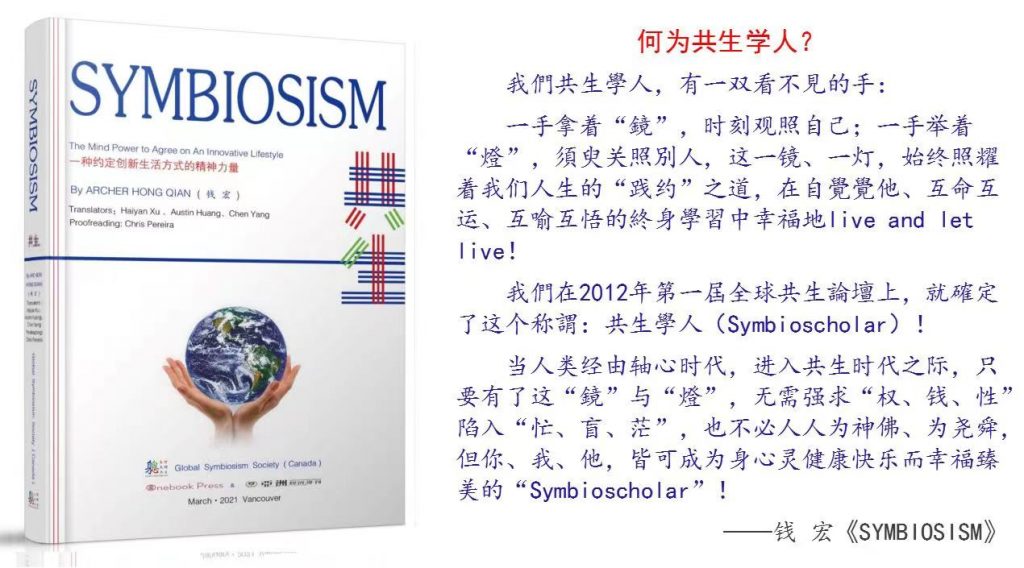
心路·Mindedness
——有意义的快乐就是幸福
钱 宏
当我接受温哥华浸信会“金根长者计划”(Golden Roots Seniors’Project)邀约,为在地青年朋友写一段文字的时候,我想到了这个题目:《有意义的快乐就是幸福》。
在讲述我的故事之前,请允许我先解析一下这个题目。2009年下半年,中国中央电视台“百家讲坛”,邀请我的同门师姐作家毕淑敏,来“破解幸福密码”。她从心理学、医学、人文科学的角度,通过案例,为我们详细解答如何破解心灵锁链——压力、自卑、抑郁、焦虑、悲伤、死亡恐惧和安全感缺乏等,潜藏在意识深层的创伤和浅层的空虚无聊,探微身心灵健康幸福的艺术。
心理学家们,比较了产生快乐与幸福的神经、生理、行为的联系和区别。发现我们的快乐基本来自神经化学递质,如荷尔蒙、多巴胺、催产素、内腓酞、血清素、吗啡、hroin、cocaine、CBD即大麻二酚等,都具有改善情绪,抵制焦虑,缓解疼痛,减轻人体对酒精和尼古丁的依赖,而让人快活享乐的感觉。但是,是否幸福,则取决于人的大脑前额叶产生的感性、悟性、灵性、德性,对这种单纯由神经递质产生的快乐感,作出是否具有价值意义的评价——即有没有“意义感”“幸福感”。他们几乎一致得出“有意义的快乐就是幸福”的结论。
所以,这里的关键在于,什么是“有意义的快乐?”
有意义感的快乐,是一种通感。不过我这里说的通感,远不只是钱钟书《通感》中说的修辞手法,即用描写一类感觉的语句来描写另一类感觉,沟通两类感觉,造成表达上的新奇感和生动性。比如“红杏出墙春意闹”“落絮无声春堕泪”,将人的视觉与听觉、视觉与触觉转换贯通起来,这种通感修辞,确实能产生审美(有意义)快乐。钱先生说“在日常经验里,视觉、听觉、触觉、嗅觉、味觉往往可以彼此打通或交通,眼、耳、舌、鼻、身各个官能的领域可以不分界限。颜色似乎会有温度,声音似乎会有形象,冷暖似乎会有重量,气味似乎会有体质。”但是,这种修辞手法用多了,大家相互“模仿”“转发”,变成一种“套语”,又会产生审美疲劳,失去意义。就象我们可以整段整段时间,尽情地躺着刷屏网恋玩游戏,说荤段子抽鸦片,可时间久了,就会觉得没意思,感到空虚无聊,甚至失去对未来的期待而索然无味。特别是在社会生活压力山大的情况下,这种快乐,你的时间、精力和体力都消耗不起,何来幸福可言?
我说的“有意义的快乐是一种通感”,是指一种能够激发你内在的Endorphin、多巴胺、血清素、催产素,同时又能调动你的感性、悟性、灵性、德性,进而怀着爱与争雄的责任、使命和意志去感知世界,拥抱他者(她、它、祂),甚至以自己独特的生命自组织力,去创建一个可能的世界,一个人人自美其美、美人之美、美美与共、赎福共生的世界。简言之,这种通感,就是一种快乐又幸福的人生体验。
所以,青年朋友们,我以为,有意义的快乐,幸福的人生体验,不只是生理的、心理的,还是社会的、宗教的和哲学的。我是一个大地上生长出来的思行者,我坦诚地和你们说,回顾过往,这样的人生体验,一开始,就与我的生命成长心路历程相伴而来。
先和大家分享一个我亲身体验到的“有意义的快乐”的小故事。那是一个金色的秋天,妈妈带我走在一条田埂上,看着成熟到可以开鎌收割的一片稻穗,正想着秋天真是收获的季节。突然听到“唉呀”一声惨叫,我们同时抬头,看到前面稻田里有一位农夫,双手抱着小腿往地里坐了下去,我们急忙跑过去察看,只见他小腿上被鎌刀割了,鲜血直往外涌,我吓得脚打哆嗦,我有一个毛病,就是看到别人流血,脚腕筋就不停颤抖。我妈不慌不忙,在田埂上采了一把草,放手里揉着,我看到黑色的草汁从妈妈的手指滴出,然后,她蹲下身子,敷在农夫的伤口上。奇迹发生了,几乎是在敷上草汁的同时,本来血流如注的伤口,立马就不出血了。
哇啊!一种从来没有的快感,从我的脚底,沿着我的后跟,冲到脊梁和后脑直至头顶……我马上问妈,这是什么草呀,我妈微微一笑,说:“这个草,叫墨旱莲,是专门用来止血消炎用的”。我说“这太好了,妈妈教我,我以后就专门做这个,给人家行方便,做这个事,我感到非常快乐”(我们老家管帮助别人叫‘行方便’,包括非专业医生给人治病,也叫‘行方便’)。妈说:“好啊,我的崽有这样的想法,太好了。你知道吗?给别人解除痛苦,你会体验到自己活着的价值,是件非常快乐的事啊!”我说:“妈妈,是呀,这种快乐,我刚才已经体验到了,是发自骨子里面的快乐。”妈妈抚着我的头,喃喃自语:“我的大崽俚,真是好啊!”不料,她说着说着,仰头朝向天空,眼泪就流了出来……我问妈妈为什么哭了,她摇了一下头,说“没什么,我是高兴。今后我教崽俚认草药。”当时,我感觉到一种无比的幸福。
后来,我了解到“神农尝百草”的故事,我也几乎把神农做过的工作重做了一遍。我认识两千多种中草药,即使不认识的草木,我也能顺手抓来一尝,凭着味觉味道,就大致知道它能入哪条经络,对人体有什么功用。针灸也是先在自己身上试针试穴位的感觉,慢慢学会的。渐渐地,我不只是给我随机遇见的人们治病,而且,随着我采药半径的扩大,自然医治对象也不限于本公社,还经常被邀请到其他地方给人看病,无论给人治好了什么病,我从来不收一分钱。
我经常被问到这个问题:“给人治好了病,收点钱是天经地义的事,你采药制药不是也要花时间吗,为什么不收钱?”特别被我治好病的人问我。我想了一下,我的回答是:我只是给大家“行方便”,并不是医生,当我看到生病痛苦的你,经我用心调理好了你开心的样子,其实我比你们还要快乐!
那时,我们全家下放到一个农村小队,作为外来户,我作为家里的长男劳动者,承担着全家沉重生活负担事小,而且,在村子里可以说受到政治、经济、文化和宗族上多重碾压,是我少年时代的“生长之痛”(Growing Pains)……但是,乐于给周边缺医少药的村民们“行方便”的我,从这种快乐体验中获得了一种特殊力量,让我几乎忘记甚或在心理上屏蔽了这种生活压力带来的烦恼。我似乎永远“生活在别处”,比如生长着某种药物的山林,或帮助某个患病者解除痛苦的努力之中。而且,由于我总是抓住一切劳动之余的时间和机会,读我能够弄到的书籍,无分“文、理、工、医、农”,这又让我总是“生活在未来”,幻想自己在某个超越当下地域限制的真正的广阔天地,干着某种经天纬地的事儿,需要当时并不知道是啥事儿……这种幻想伴随我度过了从16至23岁的成长时光。我不仅早早体验到伟大的奥古斯丁(Augustinus)说的“世界是一本书,而不旅行的人们只读了其中的一页”,而且体验到他说“在任何情况下,遭受的痛苦越深,随之而来的喜悦也就越大”的奥义。
我总是喜欢一个人快快干活,一个顶好几个人,然后我就站在田埂上高声唱歌,整个垅畈上都回荡着我的歌声,心中不觉兀自感动起来。唱累了,我就躺在田埂上看书,那时我做什么身上都带着一本书,比如老式石印本医药书。我就不在这里吊书袋子了,只说一本对我人生影响至深的书,还是我到南昌求学医偶然从一家古旧书店中淘到的书,就是黑格尔马克思恩格斯的朋友诗人海涅写的《关于德国哲学与宗教的历史》的中译本。该书给我一种从未有过的特殊激动,我第一次真正感受到哲学的魅力和哲学对人的解放力量。
该书不仅详尽地描述了根源于德意志民族的泛神论,是怎样最后导演了那场以“因孞称义”为思想标志的席卷全欧的“路德宗教改革”,而且,预示了德国古典哲学将把这个民族由分散的等级专制制度,推入统一扩张、自由竞争和等价交换的新世界。这一切,把当时还在躬耕田亩的我,简直惊呆了。最后,我在书的末尾写下了这样一句话:哲学是人类创造天赋的催生剂,它给人以智慧和勇气,使人诚实而又机敏,它激励我们走出温室去拥抱未来的陌生世界!
此外,我喜欢恩格斯《自然辩证法》式的表达方法——我对只念过中学的恩格斯情有独钟。因为在我看来,恩格斯的机智与悲悯之心,在该书中得了一次淋漓尽致的发挥,而且,恩格斯是把“自然-社会-文化-心理-历史”作为一个统一系统纳入人类理论思维视野的第一人,如他提出人与自然及其人本身的和解问题,是对康德和黑格尔纯粹思辨推导的超越,他的著名诊断“一个民族想要站在科学的最高峰,就一刻也不能没有理论思维”,也许对于科学昌明的西方人,特别是对于像爱因斯坦这样的理论思维巨人来说没有多少信息量,但对于“爱因斯坦现象”(如所谓“思想实验”)来说,仍然是成立的,特别是对于东方世界的中国人来说,则恰恰是当头棒喝醍醐灌顶。
星象学家曾断言,我此生注定要四海为家,注定是一种精神性存在,是一个从大地上生长出来的思行者,注定是为他者(她、它、祂)而活的存在者,且注定要历经“地蝎”、“天鹰”、“火凤凰”三次蜕变……
作为东方人,可能没有耶稣、苏格拉底、西塞罗、温斯罗普和富兰克林那样缜密的理性、激情和冒险精神,但是,我也不喜欢儒家或儒教那种以宗法人格需要为旨归的被动人生。不错,“儒”字,从字形上看,确有“人的需要”或“人所需要的”意味,但这里的人,是东方式的宗法绵延出人头地犬儒逐利的私人或“私民”,而非马克思说的大写的人,即自由的社会的活生生的个人,亦即既是个体、单数又是整体、复数的,因而富有公共意识的人或“公民”(社区公民、国家公民、世界公民、地球公民、宇宙公民),同时又是作为任何历史第一个前提的“有生命的个人”——富有精神体能及其生命自组织灵动力与外连接平衡力的共生人(Symbioscholar)!
私民的特色就是,永远以个体、宗法帮派的成败论英雄狗熊:成,则锦衣不夜行娱乐庆典致死,或自我膨胀目空一切;不成,则韬光养晦卧薪尝胆装孙子,或消极不作为,或戾气冲天甚至暴戾相向。所以,我在儒家倡导的至今为人津津乐道的信条——“达则兼济天下,穷则独善其身” 和立功、立德、立言“三不朽”中,得不到我所需要的快乐!
是的,古往今来,“达则兼济天下,穷则独善其身”的人生信条,使无数持有者,尤其是中国文人获得过物质和精神两重滋润,至少能给他们一种心安理得的良好的自我感觉。但我感觉,这一信条恰恰背离了中国古代群经之首《易》的精神本质——自强不息、厚德载物、穷则思变、变则通——而只是一种“无义战”(春秋战国)之后的中国人在强权之下表现出来的有几分无奈又有几分自得的活命哲学,或者叫生存智慧,其民间草根表述是“好死不如赖活”。诚然,这一生存智慧,使中国人和犹太人一样,成为这个世界上唯一没有终断自己历史文化的民族!然而,在物理时间量度之外,在臻于真善美慧神的文明和生活方式创化中,中国人奉献给世界、给地球母亲、给人类社会的东西却极其有限!
今天,世界正面临“从轴心时代,到共生时代;从智慧之爱,到爱之智慧;从因孞称义,到臻美共生”三大转变。人类社会呈现出“良智(Beautiful Mind)、文明(Civilization)、共生(Symbiosism)的综合特性,人不只是一种自然生存的动物,而是一种以其自身所涵蕴的精神物质工艺力量积极参与组织生产生活生态运行,使世界和地球臻于真善美慧神的境界的动物……于是,人,也成就为一种“发现本心(身心灵健康)、成就本事(博雅通识觉知)、守住本分(全人格通心)”的自然、自由、自在的共生人!而且,生命不息,这个“三本三自”循环往复臻于真善美慧神的过程,就不会停滞不前。在这个意义上,我的生活信条恰恰是倒过来的,即:穷则兼济天下,达则独善其身。
Bible约翰福音8:31-32:“你们必晓得真理,真理必叫你们得以自由。”每个人都能够由笃孞通晓真理安顿自己的心,成為汝一生行自由服務果效的发源地。我相信,旭日永远在每一个富有热情、智慧(良智)和果敢的人心中,“瓶颈”总要被“突破”,阴霾总会被冲开,当人类德性的太阳在天空高高漫步的时候,用自己的光辉照耀自己也照耀他者的道路。
汝识真理开心智,真理释汝乐逍遥;
因孞称义得自由,赎福共生以服务。
今年1月3日,我在温哥华讲了卡尔•雅斯贝尔斯的《历史的起源与目标》与《共生》的关系:“Form Axis Age to Symbiosism Age.”但要把握共生智慧,对我们人生的意义,还可从他的另一本书《苏格拉底、佛陀、孔子和耶稣》中展现的精神,来细细体会SYMBIOSISM中多数“宇宙之子”的四大共性:甘于献身的热情、深见卓识的愿景、悲悯敞亮的使命、坚韧不拔的行动!SYMBIOSIS书中“宇宙之子”,都是Passion、Vision、Mission、Action的思行者。他们中的大部分人,都是象乔布斯说的:值当我们用自己所有的财产来换取与之相处一个下午的时光!我相信,有无这种心态,反映了你思想的水位。
今天,我们发现,人是一种追求成本最低而获得幸福度最高的生灵。这就排除了一切基于类、整体、统一(含“罗各斯”、“一神”)哲学观念,对天、地、人进行是非、好坏、善恶、君子小人式形而上学预置的理想国、乌托邦、大同世界,对于后世人类、异族、他者、新生代的利诱、欺骗及其精神体能和生命自组织灵动力价值的蔑视!因为,只有笃行共生法则和共生智慧的理论框架、生活方式、规则制度和世界观,才能通过“共生赎福”而“赎福共生”,获得成本最低而幸福度最高的生活。
在此意义上,如果有可能,在技术上继互联网、物联网之后,创建一个共生人的心联网(MindsNetworking),将是人类快乐幸福路上的重要里程碑。
果如此,那该是多么有意义的快乐人生啊!
孞烎2021年8月15日于Vancouver
补记
从山巅之城,到共生之域
Bilble圣约·马太福音5:1-12 耶稣看见这许多的人,就上了山,既已坐下,门徒到他跟前来。他就开口教训他们,说:
“虚心的人有福了,因为天国是他们的。哀恸的人有福了,因为他们必得安慰。温柔的人有福了,因为他们必承受地土。饥渴慕义的人有福了,因为他们必得饱足。怜恤人的人有福了,因为他们必蒙怜恤。清心的人有福了,因为他们必得见神。使人和睦的人有福了,因为他们必称为神的儿子。为义受逼迫的人有福了,因为天国是他们的。”
“人若因我辱骂你们,逼迫你们,捏造各样坏话毁谤你们,你们就有福了。应当欢喜快乐,因为你们在天上的赏赐是大的。在你们以前的先知,人也是这样逼迫他们。”
这里说的众人,即包括门徒在内的所有天下人。我在《SYMBIOSISM·共生》12章讲的“从赎罪获救,到续福共生”之续福,也是从Bilble圣约中耶稣教训众人的这段“论福”(另见路加福音6:20-23“论福与祸”)中来。
Bible圣约“论福”中,耶稣一共讲了八个“有福了”,那么,如何就有福了呢?圣约中葆有“虚心”、“哀恸”、“温柔”、“饥渴慕义”、“怜恤”、“清心”、“使人和睦”、“义受逼迫”这八种品性,也就是八种“赎”福的行为方式——赎福而惜福、载福、有福。
生命之源,共生一体。生命体是由生物分子的蛋白质(尤其是酶)、核酸(DNA和RNA)、脂质、糖、维生素等有机物以不同的方式聚散相互联结,形成的细胞及其组织、器官、系统、个体、种群、群落、族裔、生态结构。生命体从环境中取得以食物形式存在的高熵状态的物质和能量,把它们转化为了低熵状态并将代谢物排出体外,从而保持自身的熵处于比环境更低的水平,维持着自身的有序状态。生命体的有序性,不但表现在空间结构的分布上,也表现在生长、发育、生殖、衰老、死亡以及对外界刺激作出有规律的反应上——隶属于任何物种、族裔的一切生命,都富有吞噬(阳光、水分、养分即种间代谢物)、求生(竞争、合作与适应)与繁衍(无性、有性、母爱)三大禀赋(功能)。而让三大禀赋功能尽善尽美联结的爱,就是神赋予各生命体“种间”(Interspecies)与“种内”(Inspecies)的自我调节、自我复制、选择性反应和价值导向(目的性)等一系列自组织灵动力与外连接平衡能力的生生不息。
温思罗普在A Model of Christian Charity说过,“爱是尽善尽美的联结”,没有一个人是一座孤岛(No Man is an Island)。把生命之躯的各部分和不同个体、族裔连缀起来的就是爱,缺乏这一纽带的机体、个体和族裔,不可能尽善尽美,由此联结起来的各部分处于一种特殊的“存同尊异,间道竞合”的共生关系中,使得人与自然(阳光、水、土地、微生物、动植物)、人与社会(语言文字、冶和、家庭、社区)、人与自己(身心灵)变得亲密无间,必然要分担彼此的力量与软弱,欢乐与忧愁,幸福与哀痛。正如《哥林多前书》12:26昭示的:“若一个肢体受苦,所有的肢体就一同受苦;若一个肢体得荣耀,所有的肢体就一同快乐”。于是,从宇宙天体、地球生灵,到人类社会,无分种属、族裔,对彼此境况的感知与同情,必会给每个部分注入一种自然的愿望和奋进心,想要援助、捍卫、支持、安慰别人,从而“道不同,亦相与谋”。这就引了爱之智慧(Amorsophia)的重大课题!
所以,共生学人(Symbioscholar)从圣约的启示中认识到,八种赎福的品性和行为方式,都需要用你的生命自组织灵动力与外连接平衡力,去相互赎取驱动实现,而不可能躺等某个偶像或组织的恩赐,所以,赎福而有福,也必会赎福而共生!
马太福音5:14-15接着说“你们是世上的光,城造在山上,是不能隐藏的。”
圣约言明,赎福共生之人饱含历史、宗教、文化、律法、经济、政治意义和所有生灵价值的“山巅之城”,被约定设置在一个朗朗乾坤众目睽睽中,照耀引导他者(无论是否门徒或人类,世间一切生灵)按照神的契约和话语,改变历史进程,走向全球生灵共襄生长,永续和平之共生之域!
朋友们,我在此特地邀请你参与一项共生行动。
面對追逐权、錢、性而自我膨脹無所適從,自陷無意義不幸福的“紛爭-對抗-衝突”的當代人類,我們唯一可盡的責任,是以神的名義來个“醍醐灌顶”,聽不聽则let it be(相關方自毀或同歸于盡),此亦是各自的福報,勉強不來。
造物主創造的一切生命形式,在其现實性與可能性上,都是共生的(既是共生起源,又是身心灵共生體)!
因此,共生(一切活體及活體間生命自组織与外連接平衡狀態,从而live and let live & a perfect connection,即为Symbiosism),是語境、是能力、是新三觀。
Symbiosism·共生不只是一個新概念,而是:人人擁有的一面“鏡”、一盞“燈”、一支“歌”、一幅“畫”、一首“交响乐”、一座“建筑”、一群“博物馆”、一柸“種子”、一张“心联网”,因而共生是:
一種新語境,
一種内在健康張力,
一種新三觀,
一種臻美生活方式。
所以,在共生語境(背景、径緯、縱橫)中,就是在共生思維方式式与价值取向中,重新審視和探究一切!
諸如:審視和探究信(孞)仰、義理、行為;審視和探究愛、智慧、爭雄(競爭);審視和探究快樂、成本、幸福;審視和探究自然(天人)、自由(人我)、自在(心物);审視和探究生物、生活、生態;審視和探究存量、增量、變量;審視和探究德道(命運)、和恊(勢動)、法術(工具);審視和探究物質、能量、信息,宇宙、地球、社會,生死、轉換、典範(體制、機制、意識形態)……
为了传播普及共生思想,普惠天下有缘人,加拿大全球共生学会(Global Symbiosism Society)將継續收集(重写)和拍攝(新創)一千个共生(Symbiosism)案例,制作成一千部微電影——统称《共生之光》,請朋友们帮助收集或编撰:
神话(传说与叙事),宗教(信仰与约定),哲學(认知与价值),科學(概率),人文(事冶),藝術(文冶),技術(物冶),動物,植物,微生物,人造物,阳光,空气,水源,土地,地矿、自遗,宇宙天体,地球生灵,國際,洲際,人際,事際,物際,群際,代際,星際,“东西南北中左右、江湖廟堂农工商”,“衣、食、住、行、信、生、老、医、保、安、居、乐、业”,商場(竞合),官場(进退),情場(散魅),身心灵健康……
发现、发掘、发明所有活體及活體间自组織与他连接生活之構成方式、关系过程、新陈代谢、强弱代偿、动態平衡相关的表达式,追寻社会生活方式可能发生的最小公倍值与最大公约值之旅:
圖片、視频、動漫、故事、文创、新聞、矩陣、字畫、段子、槽梗、書報刊、廣告文、浮世绘等等。
共生哲學也是地球上最最神奇的東西--種子!
願全人類各顯神通,上揆天機,下接地气,中達人和,創建一個通訊全開放、資源全自足、運載全覆蓋趨零邊際成本的共生世界!
作者联系方式:
Symbiosism微信@我,或Email:igs002@symbiosism.com.cn
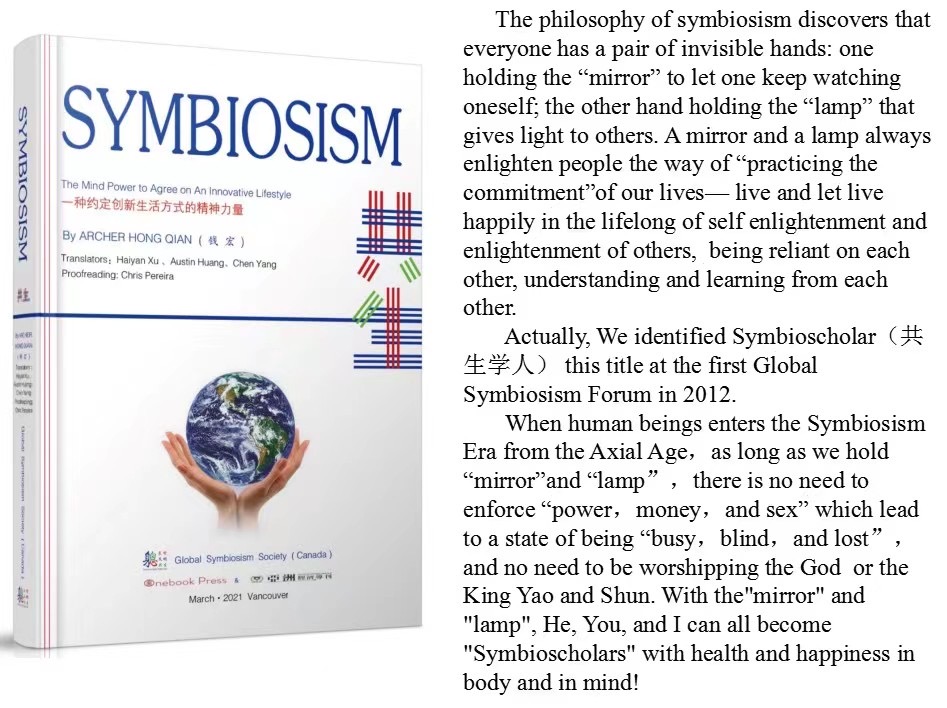
一点说明
我这里,提出了“共生人的心联网”或“共生人的孞联网”概念,这里虽然不能展开,但我承认受到布达佩斯俱乐部“全球意识(global mind)”或“网脑 (net Brain)”的启发。
相应的提法,还有人们长期以来对“全球脑”的探索。比如,通过广泛的自学和研究构建了独特的理论体系,为群体意识、演化与社会发展提出了令人耳目一新的观点以“学术外的智者”著称于世的美国作家、科学传播者、多学科跨界研究的倡导者霍華德·布洛姆(Howard Bloom)去年出版的《全球脑——从大爆炸到21世纪,大规模精神的演化》(Global Brain: The Evolution of Mass Mind from the Big Bang to the 21st Century, 2000)一书中,探讨了从宇宙诞生到现代社会,群体意识如何推动与创新的动态过程,提出了“群体心智” 是生物与社会发展的关键驱动力。Howard Bloom引用了物理学家、微生物学伊谢尔·本-雅各布(Eshel Ben-Jacob)1998年的论文《细菌的智慧,哥德尔定理和创造性的基因网》(Bacterial wisdom, Gödel’s theorem and creative genomic webs)中,说明细菌群体的作用可以当做为群体智慧。认为,大概在38.5亿年前,生命首先在这个行星上演化之后,全球脑立刻诞生了。到35亿年前为止,至少有11个物种的细菌以数万亿的群体方式生活着。布洛姆示范说,在地球早期海洋中,那些群体智慧以遗传片断的形式交换信息。细菌群体内部通过合作、竞争和使用大规模破坏武器、化学武器发动战争。布洛姆表示,战斗是最强烈的信息交换的方式之一。甚至在微生物之中,为了获胜必须经常了解和模仿你的敌人的习惯。因而甚至冲突贡献到原始智力的网络中。同时作为新的战略技术,风和波浪携带基因编码,在全球范围内改良品种,连接地球早期海洋的创造物,成为最初的全球脑。
然而,尽管Bloom提倡从全球和宇宙的尺度审视人类行为和思想,将人类置于更广阔的生态系统中进行反思,认为自然界的竞争与协作共同推动了生物多样性和社会复杂性的形成,批判了人类中心主义,从而涉及到所有生命形式的进化都依赖于群体的互动,这种互动构成了一个“全球脑”,使宇宙、社会和个体得以共生,十分难能可贵。但这里说的全球脑,仅限于知识共享,或限于“信息集合市场、协作系统、虚拟社群系统”等一些领域有向全球脑发展的趋势,因而远未释明“全球脑”的“交互主体共生”(Intersubjective Symbiosism)的哲学基础,及其人类从智慧之爱(Philosophy)的轴心时代迈进爱之智慧(Amorsophia)的共生时代背后的历史逻辑。
而建构“共生人的心联网”或“共生人的孞联网”,既是“交互主体共生”(Intersubjective Symbiosism)哲学及其人类从智慧之爱(Philosophy)的轴心时代迈进爱之智慧(Amorsophia)的共生时代背后的逻辑结果,又为“交互主体共生”(Intersubjective Symbiosism)哲学及其人类从智慧之爱(Philosophy)的轴心时代迈进爱之智慧(Amorsophia)的共生时代提供了技术支撑。
The concept of “Minds Networking” or “Xin(孞) Networking” (MindsWeb) for symbiotic humans, though not elaborated here, is admittedly inspired by the Budapest Club’s ideas of a “Global Mind” or “Net Brain,” as well as humanity’s long-standing exploration of the “Global Brain.” For example, Howard Bloom, an American writer, science communicator, and advocate of interdisciplinary studies, known as an “academic outsider,” published Global Brain: The Evolution of Mass Mind from the Big Bang to the 21st Century in 2000. In this book, Bloom references the 1998 paper Bacterial Wisdom, Gödel’s Theorem and Creative Genomic Webs by physicist and microbiologist Eshel Ben-Jacob, which explains how bacterial colonies can serve as an example of collective intelligence. Bloom argues that approximately 3.85 billion years ago, life first evolved on this planet, and shortly thereafter, the global brain emerged. By 3.5 billion years ago, at least 11 bacterial species were living in communities numbering in the trillions. Bloom demonstrates how these communities of intelligence exchanged information through genetic fragments in the early oceans of Earth. Within bacterial colonies, cooperation, competition, and even the use of weapons of mass destruction and chemical warfare were employed. Bloom asserts that warfare is one of the most intense forms of information exchange. Even among microorganisms, understanding and imitating an enemy’s habits was often necessary for victory, thereby contributing to the primitive network of intelligence. Additionally, as a new strategic technology, winds and waves carried genetic codes across the globe, improving species and linking Earth’s early oceans into the first global brain.
However, despite Bloom’s commendable effort to reflect on human behavior and thought from a global and cosmic perspective, critiquing anthropocentrism and highlighting the interdependence of all forms of life, his “Global Brain” remains largely confined to knowledge sharing or certain fields such as “information aggregation markets, collaborative systems, and virtual community systems” with trends toward a global brain. As such, it falls far short of illuminating the philosophical foundation of “intersubjective symbiosism” or the historical logic underpinning humanity’s transition from the axial age of “Philosophy” (the love of wisdom) to the symbiotic era of “Amorsophia” (the wisdom of love).
The construction of “Minds Networking” or “Xin(孞) Networking” (MindsWeb)for symbiotic humans is not only a logical outcome of the philosophy of “intersubjective symbiosism” and humanity’s transition from the axial age of Philosophy to the symbiotic era of Amorsophia, but it also provides the technical foundation for this philosophy and historical transition.







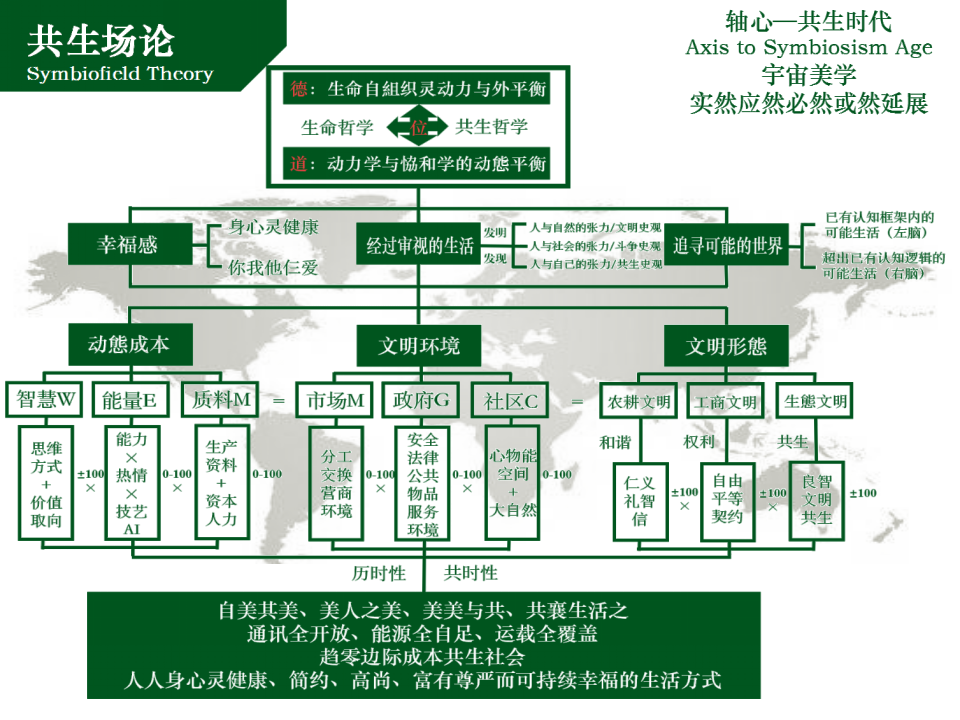





您好!请登录
已有0评论
购物盒子